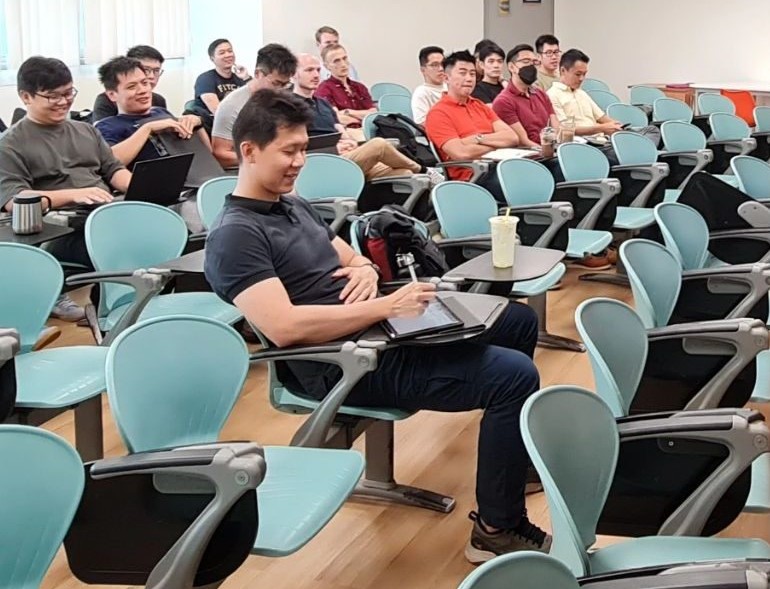Executive Certificate Programmes
Flexible learning based on individual course choices
Stackable Pathway
Participants under the Executive Certificate Programmes who wish to continue their learning journey towards the Master of Defence Technology and Systems (MDTS) can apply with the attained units from their completed MDTS courses to enroll into this master degree programme, subject to TDSI’s assessment and approval.
What we offer

Large Scale Systems Engineering deals with the complexities of large-scale systems. The Systems Approach and Systems Engineering methodologies are used by the students to understand the key issues in the planning, design and management of large scale systems. The aim of this course is to help students learn about Large Scale Systems Engineering (LSSE) with theories, stories and case studies on how systems are planned and implemented. By the end of the course, students are expected to be able to analyze and synthesize systems and design large-scale projects using the LSSE framework taking into consideration their goals, boundaries, stakeholders, complexities, tradeoffs, risks and unintended consequences.
This course provides the key underlying principles and concepts of C3 engineering and their application in the design, development and integration of C3 systems in modern armed forces. Using a systems engineering approach, the course will also enable participants to have a good appreciation of the key considerations and challenges as well as good engineering practices associated with C3 design and integration with sensor and weapon systems. Topics related to emerging trends, concepts and technologies will also be covered.
This is an introductory course to operations research which will cover both deterministic and stochastic models for effective decision-making. Topics include mathematical programming (overview on models building and sensitivity analysis; computer-based solutions), multi-criteria decision analysis, reliability and maintenance, queueing theory and simulation. Relevant cases on military applications will be discussed.
This is an introductory course to artificial intelligence (AI) and data analytics (DA). It covers various topics of AI and DA. The AI topics include heuristic search, constraint satisfaction, logic and inference, and natural language processing. The DA topics include data preprocessing, data visualization, classification, model evaluation, decision trees, neural networks, deep learning, association analysis, and clustering.
This course introduces sensor and intelligence technologies and their applications in the operational context, mainly focusing on the most commonly deployed sensor technologies such as Radar and Electro-Optical (EO) sensors as well as established and emerging intelligence areas such as communications intelligence (COMINT), electronic intelligent (ELINT) and Open-Source Intelligence (OSINT).
The course covers the principles, technologies and operational aspects of smart weapon systems e.g. guided weapons, precision munitions and unmanned vehicles (UxVs). The interplay of various sub-systems for target identification & tracking, guidance/navigation, command and control and their impact on mission effectiveness will be examined with consideration of counter-measures and counter-counter-measures. Additional topics include advanced concepts for autonomy, interoperability and teaming and cooperation. The course will include case studies of these weapon systems in actual combat.
This course introduces cybersecurity concepts and their applications. It aims to illustrate how systems can fail under malicious activities, and how the threats can be mitigated and managed. It covers both the technical and management aspects in cybersecurity. Topics include cryptography, communication security, system security, policy making human factors, etc. Applications such as security operations centres, AI and case studies on well-known incidents will be used to reinforce the learning of various concepts.
Learn with TDSI
- FOCUSED TEACHING with boutique class size teaching.
- SPECIALISED EDUCATION in Systems Thinking and Systems Engineering for defence and security.
- TAUGHT BY EXPERTS where participants/ students can learn with lecturers who are subject matter experts to enhance your knowledge, expertise and competencies to contribute to the ongoing digital transformation in Singapore and beyond.

